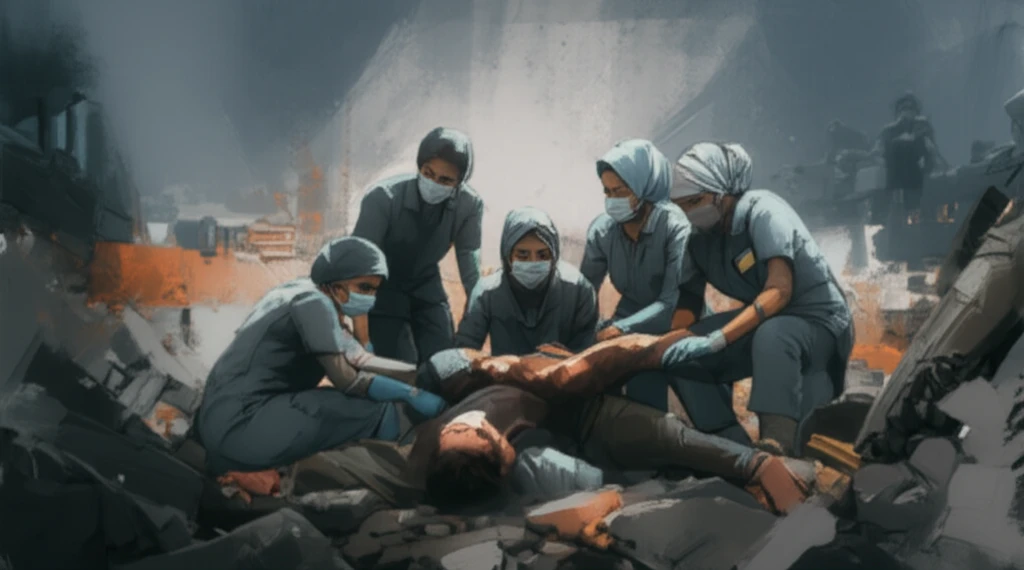
Nurse Know-How: Are Iranian Nurses Ready for Disaster?
"A new study unveils a tool to assess disaster preparedness among Iranian nurses, highlighting crucial gaps in knowledge, attitude, and practice."
Disasters, both natural and man-made, are increasingly frequent and devastating. From earthquakes to floods, these events test the resilience of communities and the readiness of healthcare systems. Nurses, as frontline responders, play a vital role in disaster management, providing immediate care and support to affected populations.
In Iran, a country prone to various natural disasters, the preparedness of nurses is particularly critical. However, a significant gap exists: the absence of a standardized tool to evaluate the knowledge, attitude, and practices (KAP) of Iranian nurses concerning disaster preparedness. This lack of assessment makes it difficult to identify areas for improvement and to tailor training programs effectively.
Recognizing this need, a team of researchers has developed and validated a new questionnaire designed specifically to measure disaster preparedness among Iranian nurses. This innovative tool promises to provide valuable insights into the current state of readiness and to guide efforts to enhance nurses' capabilities in disaster response.
Why Assess Disaster Preparedness?

Effective disaster response hinges on a well-prepared healthcare workforce. Nurses, often the first healthcare professionals on the scene, must possess the knowledge, skills, and confidence to manage mass casualty events, provide essential medical care, and coordinate with other responders. Studies have shown that timely intervention by nurses can significantly reduce casualties and improve outcomes.
- Knowledge: Assesses nurses' understanding of disaster management principles, emergency protocols, and potential hazards.
- Attitude: Measures nurses' beliefs, perceptions, and willingness to participate in disaster response efforts.
- Practice: Evaluates nurses' self-reported abilities to perform essential tasks during a disaster, such as triage, wound care, and medication administration.
A Step Towards a More Resilient Healthcare System
The development and validation of this questionnaire represent a significant step forward in enhancing disaster preparedness among Iranian nurses. By providing a reliable and valid tool for assessing current capabilities, this study paves the way for targeted interventions, improved training programs, and a more resilient healthcare system capable of effectively responding to future disasters. With further research and implementation, this questionnaire can serve as a model for other countries seeking to strengthen their disaster preparedness efforts and protect their communities.
